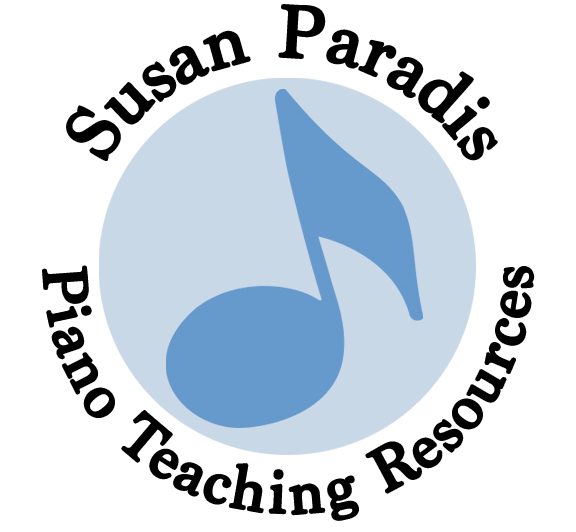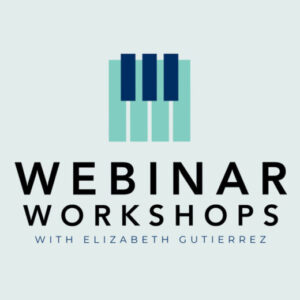Ten Ways to Improve Your Music Studio
A new year is starting, so it is a good time to reflect on your music studio and business practices. Here are 10 suggestions to professionally manage your studio with less stress and more satisfaction.
1. Have a great policy sheet. Every music studio needs a policy sheet to avoid misunderstandings. If you don’t have one, start working on one now. If you already have one, take a look at it from a “new parent” perspective. Don’t try to avoid every potential problem in your policy. Keep it friendly and positive so it will not come across as harsh or punitive. One page is long enough. Remember, your policy reflects you and your studio.
2. Divide your teaching year into semesters, with an ending date for the year. For example, your registration sheet can show first semester from September x to January x and second semester from February x to June x. If you teach year round, make a schedule to show when your semesters begin and end so there is closure and a fresh start. Having semesters also gives parents an opportunity to pay a semester rate.
3. Plan your fall lesson schedule early. Start planning for the fall semester in the spring. Have a well-publicized deadline for the deposit for fall lessons, such as April 30. Be sure to state your policy for refunding the deposit, such as a month notice, in the event something happens.
4. Do not ask parents to choose new lessons times each fall semester. Let parents know that their time slot is theirs for the next year. If they want a new day or time, they can tell you when they give you the deposit in the spring. This is a great help for parents because they can schedule their children’s activities around piano lessons. If there is a conflict that comes up before school starts, you can make minor adjustments.
5. Set up the days and and hours when your studio is open. No one is on the job 24 hours a day. If you are a teacher who makes up missed lessons, state in your policy when your studio is open to accommodate them. Some teachers will make up a lesson any day or time and find themselves never having a free day. This is not fair to you or your family.
6. Consider ending the policy of rescheduling lessons that students miss. Instead, implement a policy with a swap list. Other alternatives are lessons on Google Video Chat or Skype, or one makeup week at the end of the semester or year. However, do not change the rules in the middle of the game. Send a letter to parents explaining changes with plenty of advance notice. As long as parents know your policy before they sign up and choose to take lessons with you fully aware of your policy, you have made your best effort to minimize future conflicts.
7. Do not violate copyright laws. It is against the law to photocopy piano music to avoid purchasing copies. Some teachers illegally and unknowingly photocopy music, thinking if they own it they can do whatever they wish with it. These are the same teachers who would never cheat on their taxes or shoplift from a store. But when you copy music for your students in place of buying the music without permission, it is the same as shoplifting.
8. Be true to yourself, and honest with others. Know what you can do and not do. If you don’t want to teach a certain way or a certain age, that’s fine! In fact, private teachers need to know their philosophy and objectives. Gently suggest to parents to look further if they are not a good fit for your studio.
9. Find a balance between the old and the new. It’s hard not to jump on the bandwagon of every new idea that you read about. This is especially true of teachers who love new ideas. Educational trends come and go, and then come back again. There are teachers who think every new idea is the best idea and dismiss anything else. Then there are the teachers who have not changed since they started teaching. Be open to new ideas, new music, and new methods. Will they realistically fit in with your teaching style? However, don’t dismiss legacy music and teaching ideas with real value.
10. Keep professional records. This includes records for income tax and student assignments. Record your mileage, starting January 1. Retain and store all your receipts in a designated place. Write down everything you give a student. Keep a record of what your students have covered in their books and music you have assigned. Then you will avoid the embarrassing scenario of your high school student telling you in a puzzled voice, “But I played Für Elise in the recital last year. Don’t you remember?”



thank you so much for your great ideas!! i appreciate all the help i can get in improving my studio!!
have you written anything in the past about what to do when students are consistently unprepared? do you ever “remove” families from your studio because of failure to practice?
so many questions…wish i lived close enough for a personal workshop with you!! denise
thank you so much for sharing your good ideas!! i really appreciate it!
have you written anything in the past on what to do about kids that consistently come without being prepared? i need help in that area!
denise
All fabulous suggestions, Susan! Thanks for such a wonderful site. You are my go-to-blogger for all sorts of worksheets and especially your pre-reading piano arrangements. Many blessings on your New Year!
Thank you Susan for this great post, I appreciate your ideas to organize and run the studio efficiently, something I can definitely continue to improve on.
Thank you for all you do and for sharing all your amazing creations and resources!
Great suggestions! I wish I could offer students the same spot as the previous year but that doesn’t work in my area – the other activities (which are mostly groups) are scheduled first and then piano is fit in. (My policy used to be four pages, this past year it was two and I’m working on making it one!)
Thank-you, as well Susan. Good advice before my new semester begins. I needed a professionl nudge in the right direction.
Here’s comment # 2: Keep playing yourself. Don’t limit yourself to just what you need to learn for teaching, always have your own music going. If you think you don’t have time now, just think how little time you will have in 30 years. 10 minutes a day is 60 HOURS a year. If you aren’t involved with your own music you can’t expect to be very inspired about teaching. Here’s a little article I wrote about playing the piano this year: http://meganhughesmusic.com/2011/12/26/how-to-play-th…iano-this-year/ I wrote it to inspire myself.
A good list. Might I add # 11: Plan for every lesson, record some kind of record for every lesson (for you, not the student), make a long-range and short-range plan for every student, be willing to throw out the plan at any time if it isn’t working.
Megan~ I am trying to keep better records of each lesson, but I don’t know when to record them. Do you jot things down during the lesson for yourself, or when it is over? I have back to back lessons and then at the end of the day I cannot remember a thing. Thanks! ~Hannah
These are great!! I do have a policy, but it seems to keep growing due to issues I have with different students…how do you avoid adding new stuff each year?
At the beginning of this term I implemented Music Teacher’s Helper into my studio for record keeping. It has been an absolute lifesaver!! No more tracking down parents to pay or trying to keep records of everyone’s books and fees. One step at a time, my studio becomes more professional and practical. Thanks for all the ideas you give us!
Wonderful advise. Fortunately, I can check off most of the suggestions already, but there are some I should definitely consider implementing. Thanks so much.
Super post–love ideas of being organized in studio scheduling. Thanks!
Thanks for an insightful article!
Susan, thanks for these guidelines. It helps so much to hear what others teachers recommend and how they effectively run their studios. You are the best!
Thanks, Diane. When I first started teaching I had no idea about how to have a professional piano studio! In the end, teachers have to come up with what works for them!